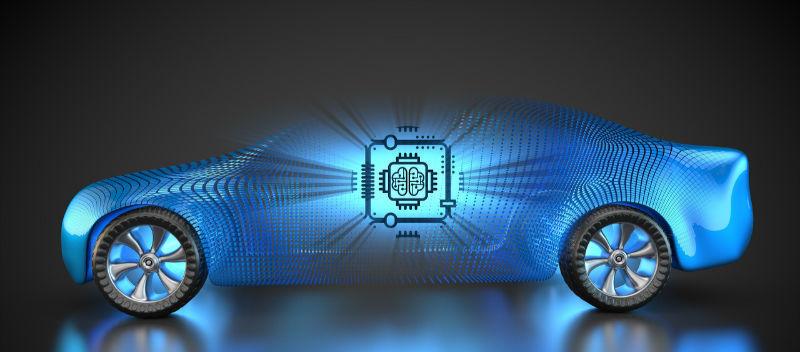
Wang Shuaiguo, a reporter of the Economic Observation Network, said: "They (automobile manufacturers) have changed from the previous model definition based on function implementation to the current model definition based on customer experience and user feelings." It needs more advice from chip companies to flexibly define the differentiation and competitive points of the model. Recently, at an automotive chip media exchange meeting, Xu Chao, vice president of XinChi Technology, said that this change has ushered in unprecedented development opportunities for domestic chips.
Founded in June 2018, Chip Technology is a vehicle-grade chip company, which has released 9 series of high-performance SoCs (System-on-Chip) for the automotive market such as intelligent cockpit, automatic driving, and central gateway, and completed the underlying domain control chip of the vehicle with a higher functional safety level in the same period.
At this exchange meeting, Xinchi Technology put forward the above novel point of view: the status of chip factories has improved, not only because of the "chip shortage" in the world, but also because the deeper reason is that the basis for car manufacturers to define models has changed from functional requirements to customer experience.
"In the traditional model, the main engine factory almost does not need to deal with chip companies, mainly to Tier1 to select the model." The mainstream (model) electronic system differences are small and the homogenization is serious. Now it is different, chip companies entered (involved in vehicle manufacturing) more than 16 months ahead of schedule, many OEMs will let our chip manufacturers participate in their discussions in the early stage of model planning." In Xu Chao's view, the "fifth" that appears outside the "new four modernizations", that is, personalization, is requiring automakers to create more obvious differentiation from other competitors to increase the attractiveness of new models for consumers.
The more profound reason behind this change is that China's auto market has entered the stock market stage from the original incremental market, and a large number of new models with serious homogenization have been difficult to arouse the interest of the younger generation of consumer groups pursuing personalization.
This also makes the role of the chip as the "brain" of the car begin to stand out. According to Chen Shujie, chief brand officer of Xinchi Technology, the current automotive electronic and electrical architecture is changing from the traditional ECU (electronic control unit) to the "domain controller" architecture, and will evolve to "central computing + regional control" in the future.
This puts forward higher requirements for the quantity and quality of chips carried by a car. Data show that by 2025, the global semiconductor market will exceed 400 billion, while China's automotive semiconductor market will reach 120 billion, doubling from the current level.
At the same time, as the world's automobile power, China's automotive chips rarely enter the international mainstream market. The world's top 7 MCU (microcontrol unit) suppliers account for more than 90% of the market, while Chinese manufacturers have less than 3%.
Based on this, the state is increasing its support for the development of domestic chip companies, and the capital market is also setting off a wave of investment fever. In the past two years, a number of emerging core-making companies represented by Xinchi Technology, Horizon, Xiaoma Zhixing, etc. have received a large amount of capital investment.
With the support of policies and capital, a large number of domestic chips are rapidly landing. In the fourth quarter of 2020, Chipcom mass-produced the first 16-nanometer vehicle specification processor in China; in the second quarter of 2021, Chipcom Technology released a full range of vehicle-grade processors, including cockpit chip X9, automatic driving chip V9 and gateway chip G9.
At the event site, Chip Technology exhibited its latest "One Core Ten Screens" Demo (sample), which realized that through X9U one chip, supporting up to 10 independent Full HD displays, including front-row instruments, central control screens, HUDs and multiple entertainment screens, can achieve multi-screen sharing and interaction.
According to Xu Chao, in March 2022, Chip Micro Technology will soon release ASIL D level (the highest vehicle safety level) MCU chip. In the fourth quarter of 2022, the 200Tops hashrate vehicle specification processor was released, and it is equipped with an open platform and ecosystem.
In the industry's view, the major changes in the basis of model definition and the emergence of chip shortages have greatly increased the importance of chips in automobile production. However, China is far behind Europe and the United States and other countries in this field, and more accurate support policies and rational capital investment are crucial to the rapid development of the industry.